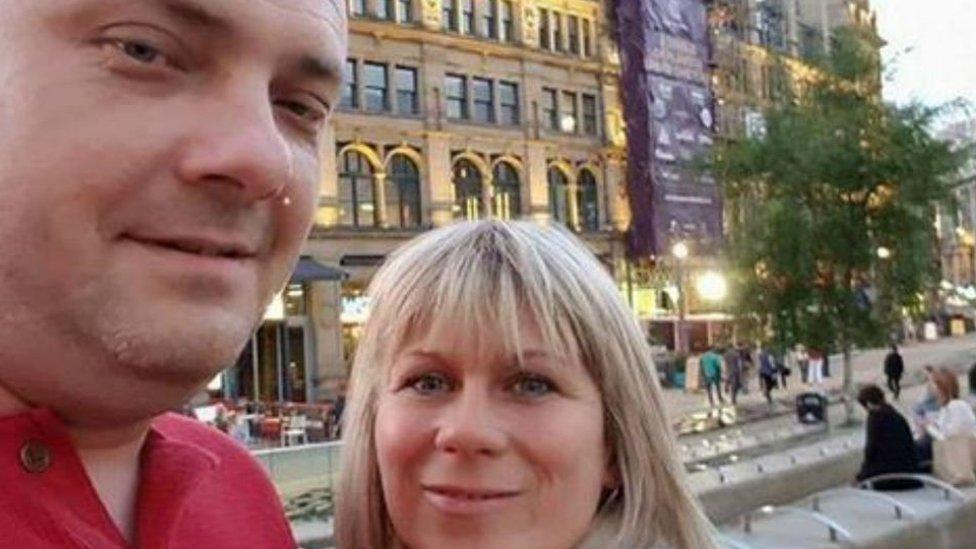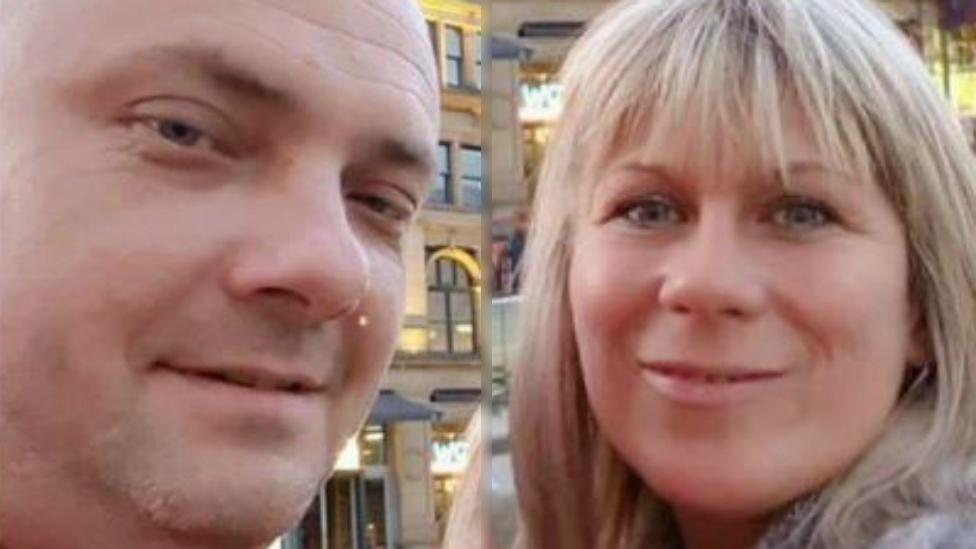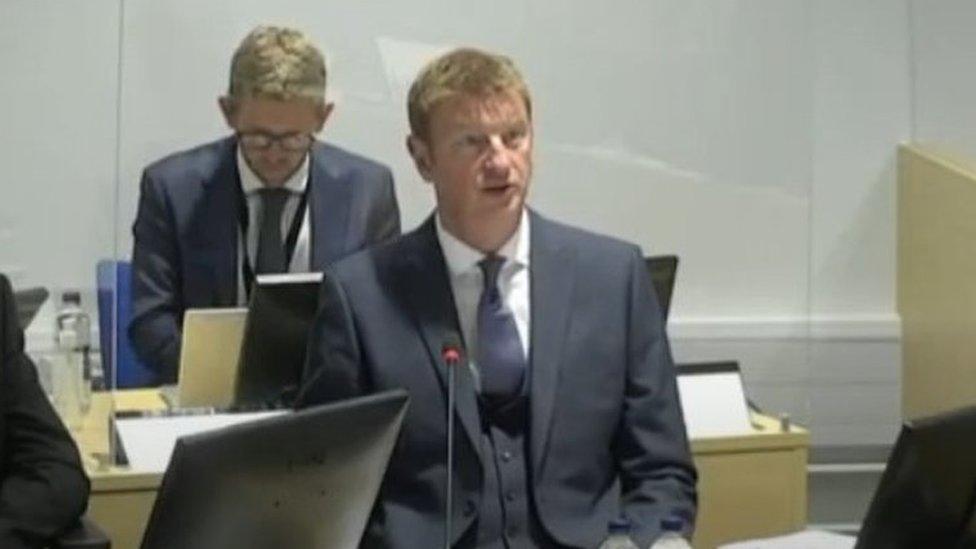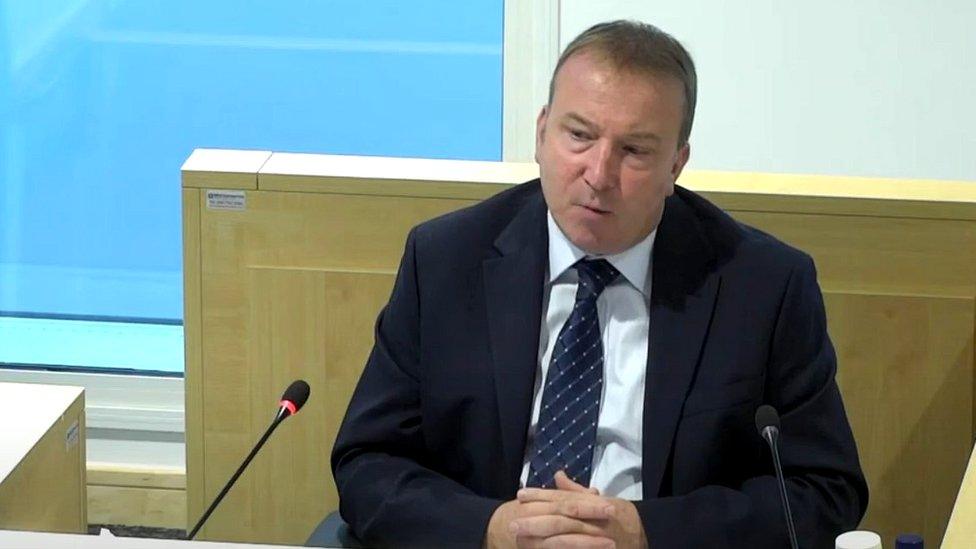Manchester Arena Inquiry: York couple died in each other's arms
- Published

Marcin and Angelika Klis, pictured on the evening before the bombing, were described as "soul mates"
A couple who were killed in the Manchester Arena bombing died almost instantly with their arms around each other, an inquiry has heard.
Marcin and Angelika Klis, who were from Poland but lived in York, were among 22 people killed in the May 2017 attack.
The Manchester Arena Inquiry has begun hearing evidence on the circumstances of each of the 22 deaths.
It also heard that "happy and positive" Courtney Boyle, 19, from Gateshead, suffered unsurvivable injuries.
Salman Abedi killed 22 people when he detonated a device at the end of the Ariana Grande concert on 22 May 2017.
The public inquiry heard that married couple Marcin, 42, and Angelika, 39, died almost instantly at the scene.
The couple, described as "soul mates", were in the arena foyer waiting to pick up their two daughters from the concert when the bomb exploded.
They were standing with their arms around each other just 13-16ft (4-5m) from the bomber, the inquiry heard.
CCTV footage showed the couple lying motionless next to each other.
The court heard they were checked by first aiders, police officers and a paramedic but neither showed any sign of life.
Mr Klis had suffered chest injuries while his wife had head injuries, and medical experts have said their injuries were unsurvivable.
A pathologist report said the "epicentre of the explosion was just in front of Angelika and Marcin" and that "death would have followed rapidly".

Courtney Boyle wanted to work in the prison service
Courtney Boyle was at the arena with her mum's partner Philip Tron, who also died in the attack, to pick up her sister from the concert.
The inquiry was told that the teenager was just 13ft (4m) from Abedi, 22, when he blew himself up and she died at the scene from unsurvivable injuries.
A member of the public, Robert Grew, checked on her but said she showed no signs of life.
Inquiry chairman Sir John Saunders described the teenager as a "talented, hardworking" young woman who would have had a "successful and fulfilling life".
The inquiry will hear over the coming weeks the extent of the victims' injuries and whether they could have survived with better or quicker medical care.
Greater Manchester Police has reviewed and assessed hundreds of hours of CCTV footage from the night of the bombing to prepare evidence for the inquiry.
The material came from 90 CCTV cameras, 52 body-worn cameras and mobile phone footage.
The inquiry continues.

Why not follow BBC North West on Facebook, external, Twitter, external and Instagram, external? You can also send story ideas to northwest.newsonline@bbc.co.uk, external
Related topics
- Published16 September 2020

- Published15 September 2020

- Published20 September 2021

- Published17 September 2021

- Published16 September 2021

- Published15 September 2021
